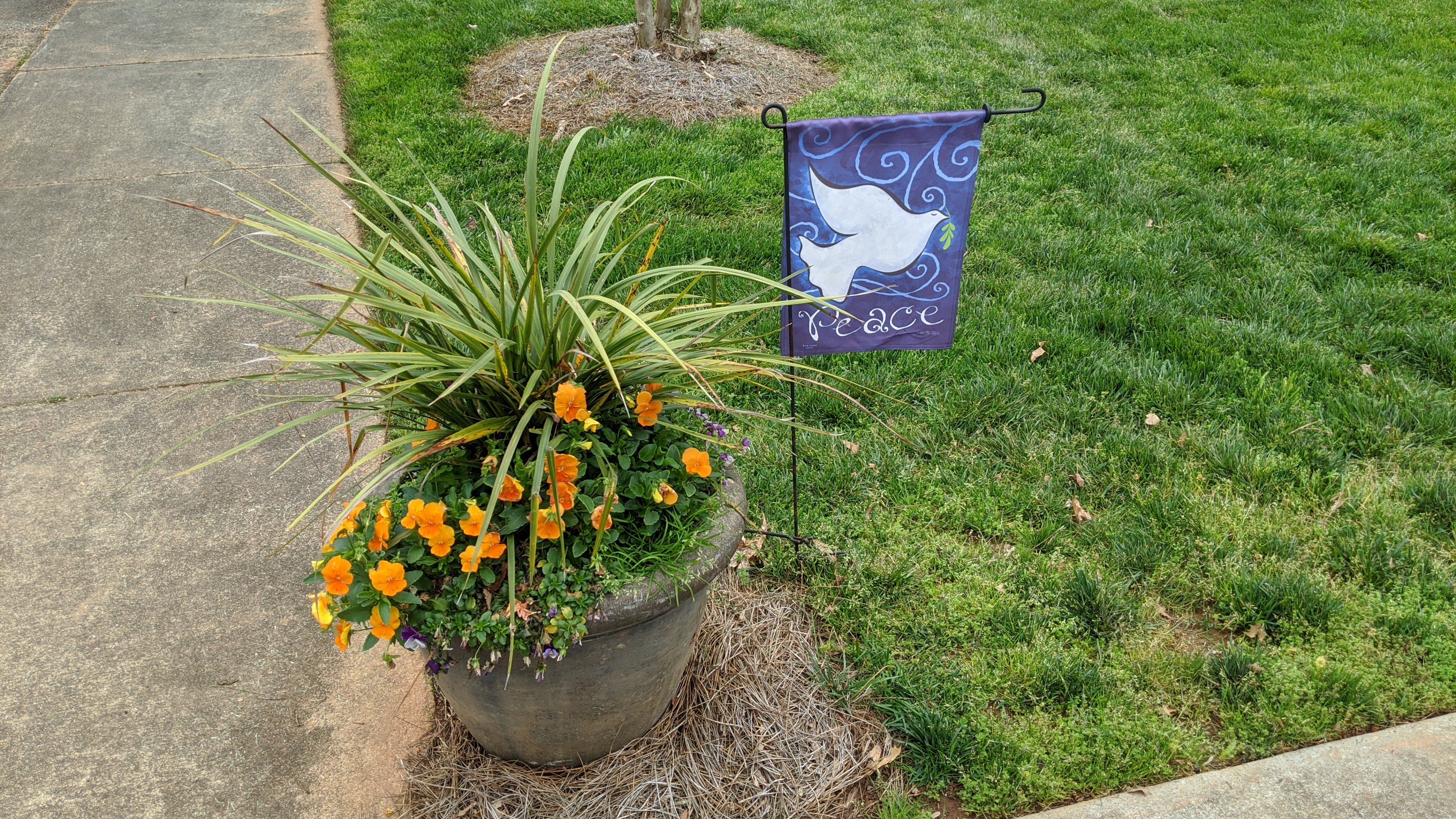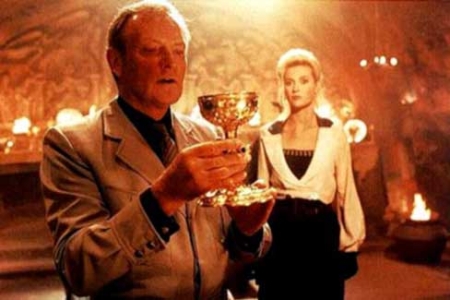Hear the Word of the Lord

Hear the Word of the Lord
A Sermon For Sardis Baptist Church
Bob Stillerman
Fifth Sunday of Lent, 3/29/2020
Ezekiel 37:1-14
Hear the Word of the Lord Ezekiel 37.1-14 3-29-2020
Long, long ago, Moses stood upon a mountaintop, and looked out into a valley full of promise. One day soon, God’s people would inherit a new land flowing with new possibilities. And it was so! This valley thrived. God, people, and land, all living in accordance and covenant with one another: Israel, Jacob’s people, a land flowing with milk and honey, a Jubilee!!!
The Temple had been the place where God resided, and where God’s spirit inspired God’s people to protect the most vulnerable: the orphan, the widow, and the stranger. The King and his priests had been the agents of God’s justice and God’s wisdom. The land had been a reflection of God’s sustaining generosity for all.
But something happened. Slowly but surely, God’s people stopped pursuing covenant living, and started worshiping little gods. Somewhere along the way, Israel turned away from God, and its institutions and systems, the earthy protectors of God’s covenant, became the very instruments that harmed God’s people. Temple taxes exploited the most vulnerable citizens; kings traded integrity for political convenience; military alliances superseded theological convictions; love of self trumped love of God and love of neighbor.
Something righteous, something pure, something wholly-connected to God began to decay. It rotted. It decomposed. It dried out.
And David’s once-royal city was sieged, and sacked, and destroyed, and David’s people were captured and taken away to a foreign land.
It’s in the midst of this Babylonian exile that we hear today’s text. Like Moses, Ezekiel looks upon a great valley. But where Moses once saw life, and promise, and possibility, Ezekiel now sees death, and pain, and impossibility.
Ezekiel has a vision, and in it, he sees what he describes as a valley of dry bones. Now when we hear the word bones, we most likely think of clean, white, beaming skeletons like we display in our yards during Halloween, or like in your biology teacher’s classroom, or like Jim McAlhaney’s friend Slim, who accompanies Jim everywhere he goes during the month of October. These aren’t those kind of bones. These are dry bones.
Remember in Indiana Jones and the Last Crusade, when they finally find the grail room, and Walter Donovan chooses “poorly,” and his body ages hundreds and thousands of years? His healthy flesh transforms into brittle bones that are so weakened they become dust, and vanish.

Ezekiel is not seeing a valley full of chicken bones you and I cleaned from last night’s wing dinner. He’s seeing stacks and stacks of Walter-Donovan-kind of bones. These bones are dry and lifeless.
Now, I imagine, being a sentinel and a prophet of God, Ezekiel had some stick-to-itiveness about him. Sure, this is a fantastic story about dry bones. But don’t get distracted. Those dry bones represent Israel, a people exiled from their homes, and feeling exiled from God. Their entire sense of identity – a people, a land, and way of life, all rooted in God – has vanished. And maybe they aren’t skeletons, but these exiled people are walking around in a lifeless trance. And I have this image of an energetic, persistent, passionate Ezekiel, making his way around in this valley, or this city square. He’s looking every-which-way at this pile of bones, or this lifeless people, and he’s searching. “Surely, there’s some life left in you? Surely all of God’s identity and creativity has not abandoned you? Surely, this isn’t the final word, is it?”
And Ezekiel hears a thundering voice. “I hear you, Mortal, what you’re really is, ‘can there be some life left in these bones?’”
And here, I think, Ezekiel utters one of the most prophetic, poignant, authentic, truthful statements in all of scripture, “O Lord God, you know. Only you know.”
Yes, we can construct temples. We can manufacture armies. We can collect wealth. We can acquire lands. We can even, sometimes, predict the weather. But when it comes to offering life; when it comes to resurrecting human flesh, to giving life to what was once lifeless, well, that’s beyond our comprehension.
So God says to Ezekiel, “Speak my word. Prophesy to these bones. Let them know that I’m gonna put my breath, my ruach, that’s the spark of creation, the spark of life, I’m gonna put my breath in this lifeless people, and they are gonna live again. And they are gonna know my name again.”
So Ezekiel spoke, and those bones shook, and danced, and clattered as they pieced themselves together; and they were covered with muscle, and tissue, and skin, and the anonymous become synonymous again; But they were still still.
So God said, “Let’s give them breath. Prophesy to the breath, gather up the four winds, let’s make these bodies inhale and exhale again!” And so Ezekiel spoke. And the people stood. And they breathed in the breath of God.
Then there was one final act. God said, “Ezekiel, you know who these bones are, don’t you? This is Israel. They say their bones are dry. They say there’s no hope in Babylon. They say they are cut off from me, exiled from God’s presence.”
“Tell them otherwise. Prophesy to them about my power and my presence. I’m gonna open up this perceived tomb of death; I’m gonna be present again; I’m even gonna bring them back to their own soil, so that one day they might praise me in their home temple again. My spirit’s gonna reside in Israel again, they’re gonna live again, and they’re goanna know that I’m a God who speaks and acts and remains present.”
“Well, that’s a neat story,” you might say. But what do dancing bones have to do with me, especially this Sunday morning?
Our story is not really about bones. Our story is not really about our ability to comprehend the laws of biology and anatomy. Our story has nothing to do with human ability.
Our story has everything to do with God’s ability. The scriptures don’t promise an end to the hardships and pain and uncertainties of life. What they do instead is to reveal the ability of God to redeem, to resurrect, to reclaim life in the midst of hardship, pain, and uncertainty.
Flood, disease, deportation, enslavement, war, violence, famine, pestilence, stupidity, greed, hate, anger, untold hardships…all of these things and more, dot the history of a people called Israel. And every time these hardships arose, God responded with life: rainbows, healing balms, a return home, exodus, freedom, parted seas, peace, harvest, jubilee, community, manna, flowing waters, land, creativity, love, patience, kindness, goodness – salvation, the space and the grace to live into new challenges.
Ezekiel had a vision. Those bones didn’t jump up immediately and make their way home. But God’s word prodded, and provoked, and sewed hope. And eventually, after a few decades, Israel made its way home to its own soil, to worship God in its own temple. There was life beyond exile, life beyond the fall of the first temple, life beyond Babylon.
This morning, we find ourselves in a strange exile. For now, our exile lacks the scale of violence, trauma, death, and grief of the Babylonian exile. Though to be sure, all of these elements, and more, are present. We pray that our exile will be brief. But we share in the same sense of uncertainty. The systems that have so grounded us are unraveling before us. And like those exiled Israelites, we wander in a stupor, grieving those things that once defined us. How can we still be community, when we can no longer gather in our churches, or learn in our schools, or conduct trade in our places of business, or be made well in our hospitals, or feed our children, or take care of our most vulnerable neighbors, or control all those things we define as vital? Like Ezekiel, we wonder, “Can there be life in such a place?”
Well, if I’m honest, really honest, my answer is, “I don’t know.” This is the kind of thing that’s beyond our wildest imagination and comprehension.
But like Ezekiel, I faith that God knows.
And like Ezekiel, who waited to see life in dry bones; and like those women who waited on a dark Friday and through a Saturday, and into a Sunday morning to demand new life; And like Hagar who waited in the desert on God’s rescue; and like Elijah who waited in the silence of a cave for God’s presence; and like the Apostle Paul who waited with confidence for whatever was next; and like Jesus, who waited with an anxious, but perfectly human trust for what God required; I also wait to hear a word from God.
I do not know what God knows. But I do know the nature and character of God. And I know that if we listen, really listen, we can hear God’s word, we can be filled with God’s spirit, and we can live as God’s people, not matter what kind of valley we find ourselves in. When such a thing happens, dry bones turn into healthy bodies; faithful women find empty tombs; mothers find unexpected oasis; silence reveals a still small voice; an old curmudgeon finds joy, even in captivity; life can no longer be silenced death, even on a cross; and God’s spirit, God’s ruach, God’s breath, finds us, even if we’re at a safe physical distance.
Sardis Baptist Church, and all who will listen, hear the word of the Lord:
I will put my spirit within you, and you shall live, and I will place you on your own soil; then you shall know that I, the Lord, have spoken, and will act.
God in your mercy, may your words be so. And may their truth be soon. Amen.
Recent Sermons
The Beginning of a Journey
June 29, 2025
Divine Disruptions
June 22, 2025
God Beyond Us, Within Us, and Between Us
June 15, 2025


